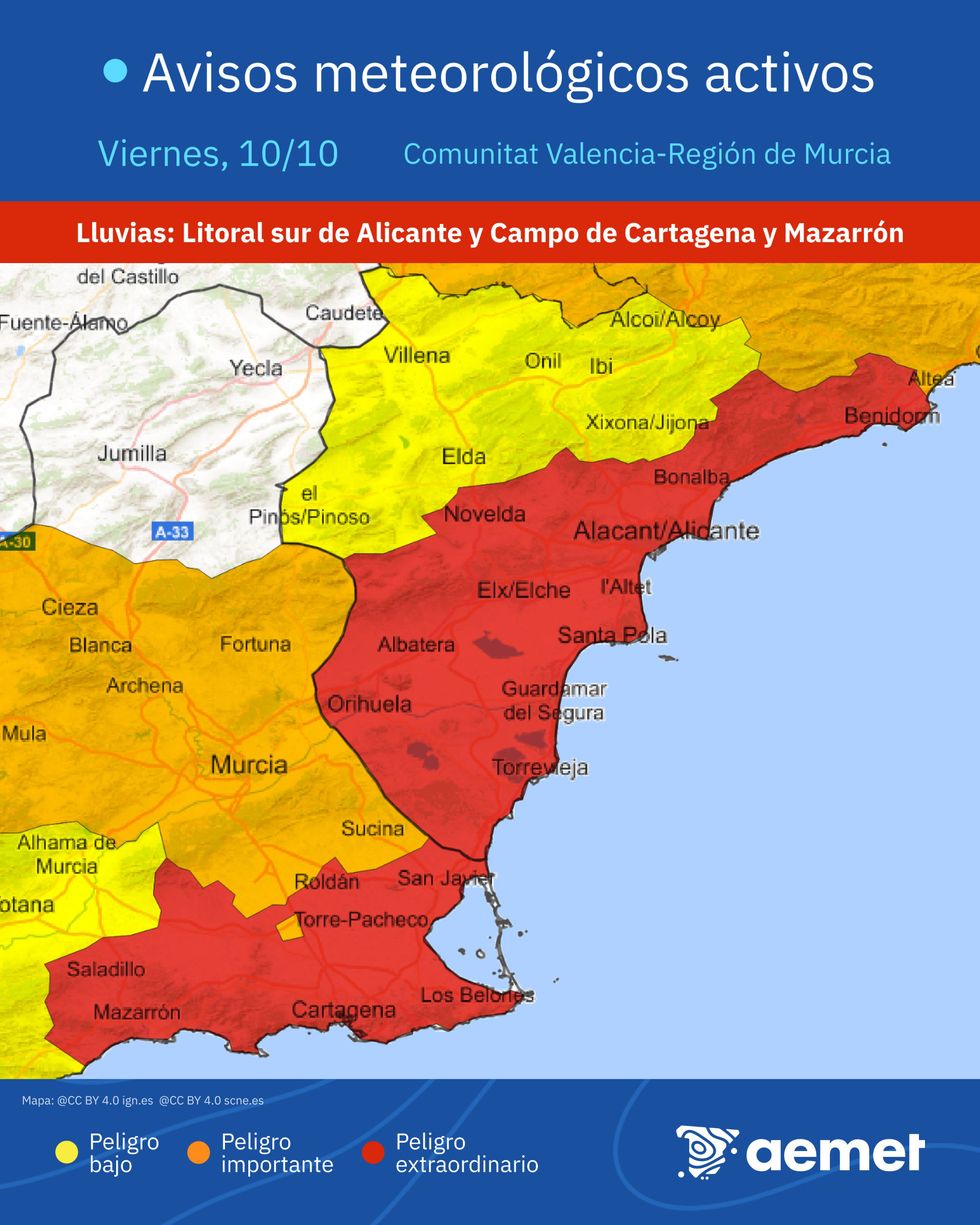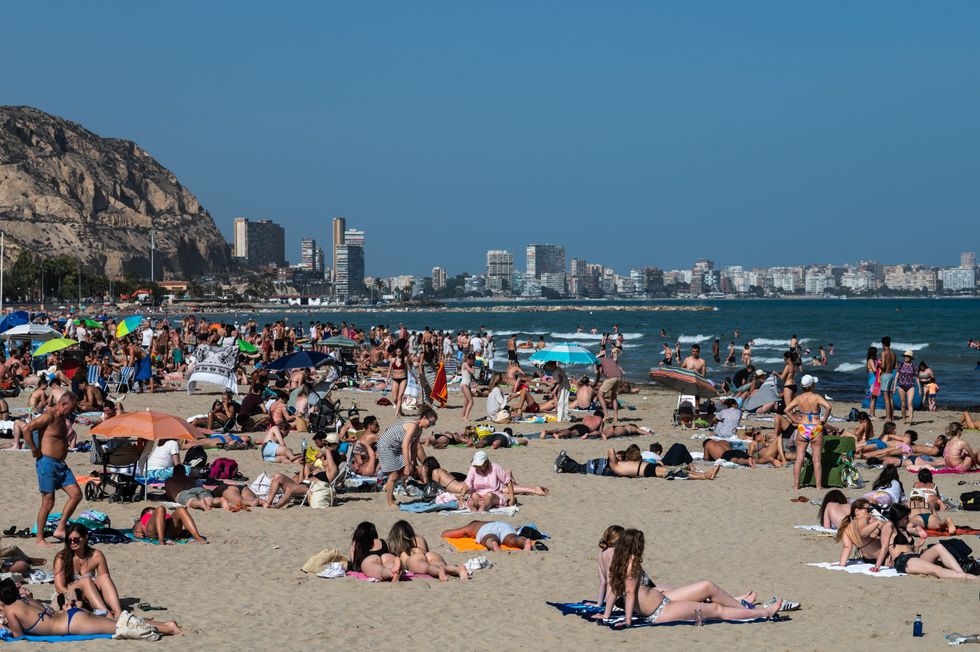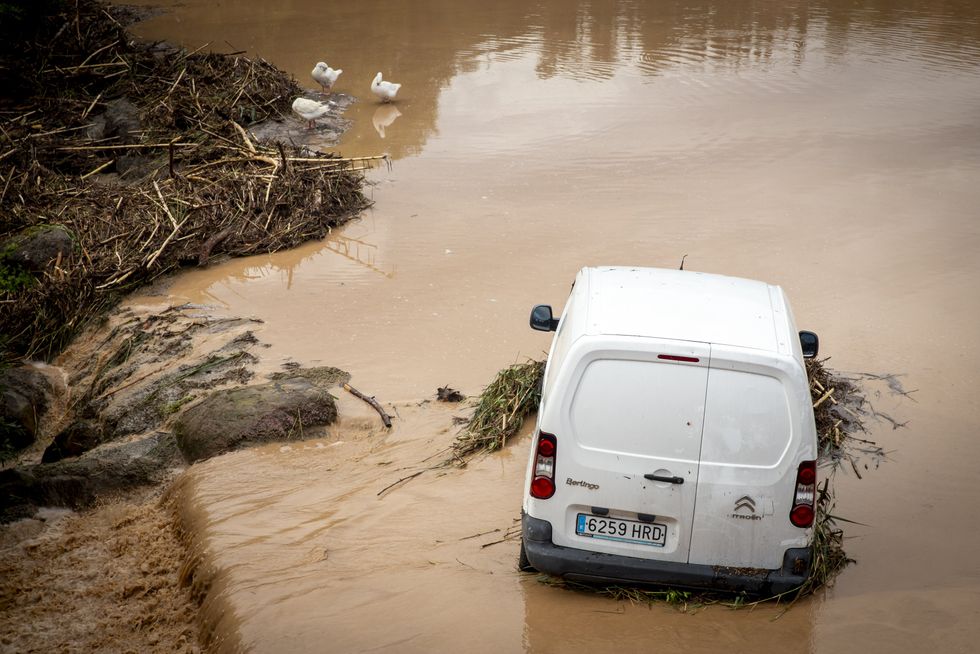



Thousands of Britons have been told to brace for "extraordinary danger" across the Costa Blanca on Friday ahead of the arrival of a deluge of torrential rain.
With Storm Alice bearing down, Spain's meteorological service Aemet has activated its most severe weather alert.
The Spanish weather agency will implement a red warning for the Alicante region from 10am local time on Friday, cautioning residents and visitors about potentially catastrophic rainfall.
Emergency services in Ibiza and Formentera have also bolstered their response capabilities after the islands were placed under orange weather warnings for storms and heavy rain.

Regions in red have been told to brace for 'peligro extraordinario', or 'extraordinary danger' on Friday
|AEMET
Authorities have advised holidaymakers visiting Spain's Mediterranean coastal regions to stay informed about weather developments and adhere to official instructions.
In a statement, Aemet said: "There is a high uncertainty in the position of Alice and its interaction with surface flows, which will determine the areas of greatest adversity each day, so detailed monitoring of forecast updates and warnings is recommended over the next few days."
From the early hours of Friday, heavy downpours are expected on the coast of Tarragona, Barcelona and Valencia - home to tourist hotspots like Benidorm.
Throughout the day, these will spread across to Ibiza and Formentera, the rest of Murcia, the eastern half of Andalucía and southern Castilla La Mancha.

PICTURED: Tourists gather on Alicante beach. Authorities have advised holidaymakers visiting Spain's Mediterranean coastal regions to stay informed
|GETTY
The warning does not rule out that they may also occur in other areas of Castilla-La Mancha, Catalonia - all of which combined welcome millions of Britons every year.
The approaching storm system could even bring devastating floods to the Mediterranean coastline - barely a year after Valencia experienced its deadliest natural catastrophe in recent memory, when 220 people perished in flash flooding.
Meteorologists predict rainfall could cross the 140-millimetre mark within 12 hours, with Valencia expected to bear the brunt of the deluge.
The weather service has extended warnings to multiple areas of the Spanish coast, including Murcia and the Balearics, where "very heavy and persistent rainfall" is forecast to continue through Monday.

Flash-floods in Spain last year claimed hundreds of lives
|GETTY
Aemet cautioned on social media that residents should "follow the advice of civil protection", highlighting the risk of flash flooding in low-lying regions, waterways and ravines.
The agency also warned of the "high" danger level posed by the weather system, adding that sudden torrential downpours could trigger localised flooding across the affected zones.
October 2024 saw Valencia suffer Spain's most catastrophic natural disaster in decades, with hundreds dead and billions of euros in damage.
The European Commission announced last week it would provide €945million (£820million) in recovery assistance for the affected regions, supplementing Spain's own €2.3billion reconstruction fund allocated by Prime Minister Pedro Sanchez.
The total European support package will reach approximately €1.6 billion, with an additional €645 million being redirected from Spain's existing cohesion funds.
Public anger persists over the handling of last year's Valencia floods, with residents staging ongoing demonstrations against what they perceive as authorities' failure to issue adequate warnings.
Scientists attribute the increasing severity and frequency of such extreme weather events to climate change, noting that warmer atmospheric conditions enable greater water absorption from the rapidly heating Mediterranean Sea.
